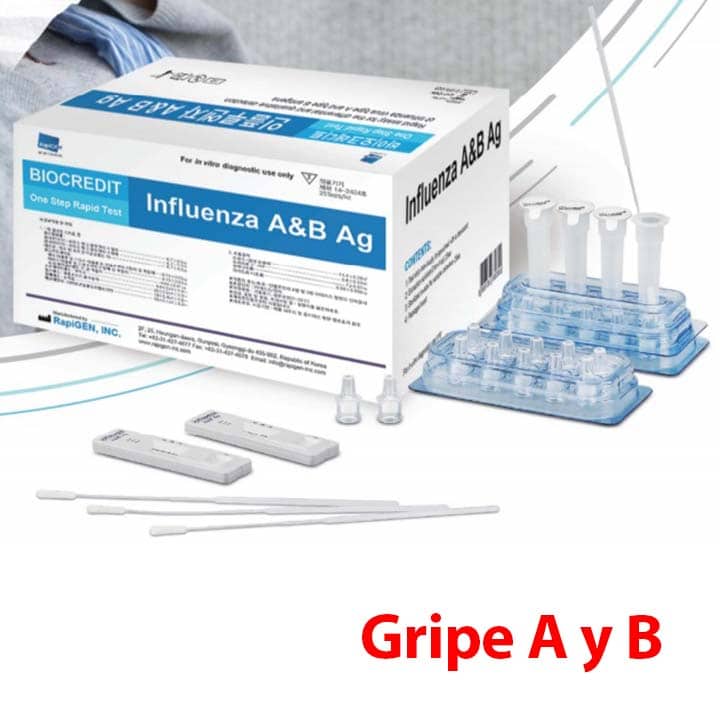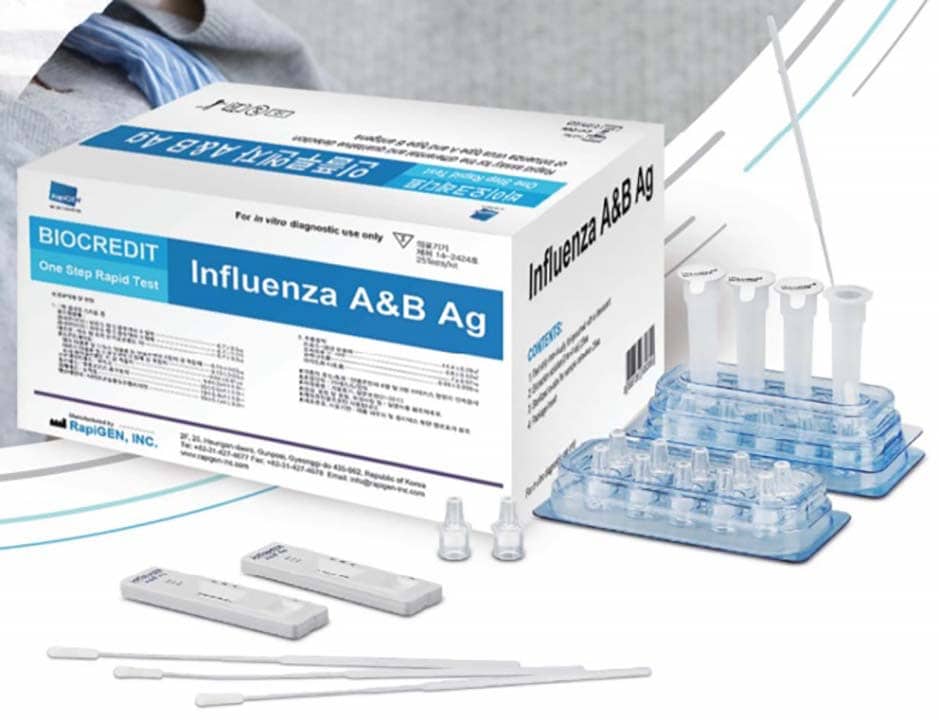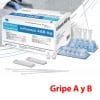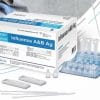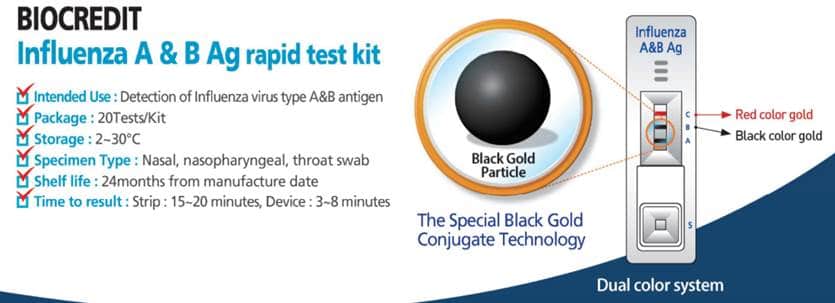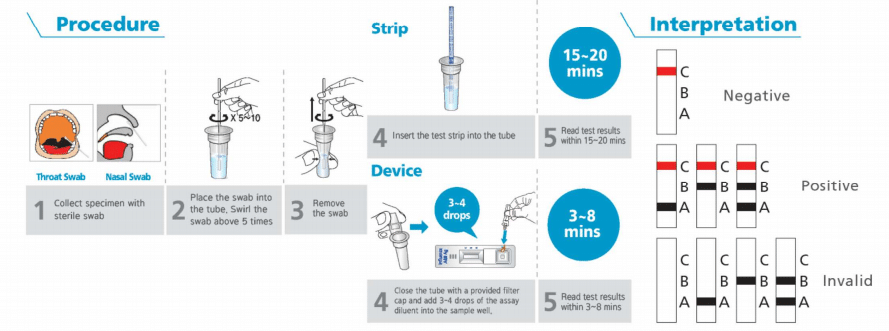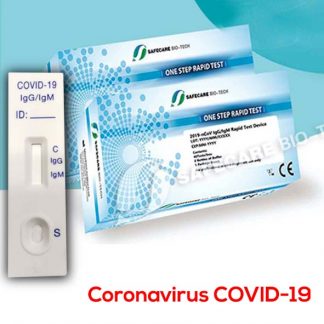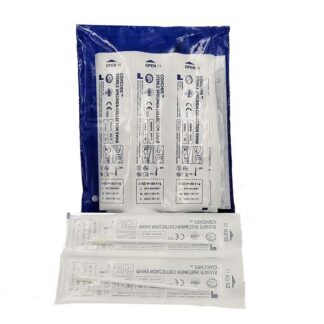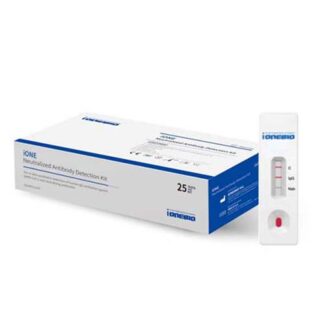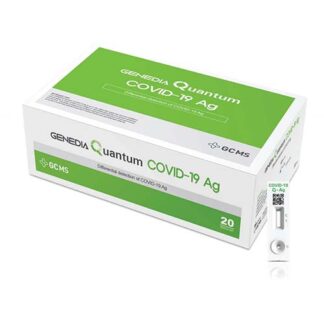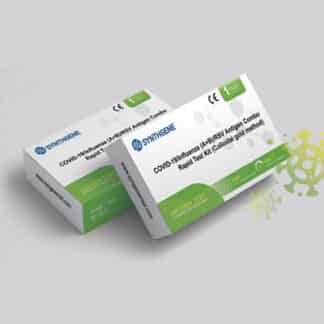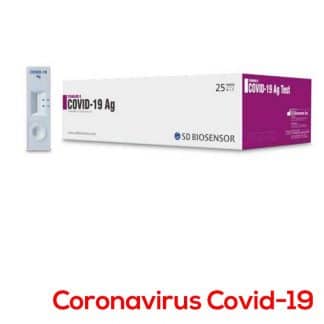Description
BIOCREDIT Influenza A & B Ag rapid test kit
Description
BIOCREDIT Influenza A&B Ag Quick Flu 3 is a lateral flow immune chromatographic assay that adopts a dual color system. The test contains colloid gold conjugate pad and a membrane strip pre-coated with antibodies specific to influenza A or B virus antigens on the test lines (A and B respectively). If influenza A and or B virus antigen is present in the specimen, a visible black band appears on the test lines (A and/or B) as antibody- antigen-antibody gold conjugate complex forms. The control line (C) is used for procedural control and should always appear if the test is performed correctly.
For the qualitative detection of influenza A&B virus antigen from nasal, nasopharyngeal or throat swab.
- The first commercialization Black Gold Particle technology in the world (high sensitivity and specificity)
- User friendly Dual Color System
- (Control line: Red, Test line: Black)
- Rapid Test Time (3~8 Min)
- Simple and simultaneous detection of diverse Influenza A&B virus types (ex. H1N1, H3N2)
- 20 test pack
Flu is an acute respiratory disease caused by influenza virus. It infects the upper (nose and throat) or the lower respiratory system (lungs) and is accompanied by symptoms such as a sudden onset of high fever, headache, and muscular weakness. The virus is highly contagious, and it is more likely to develop complications in the elderly, children, or people with certain chronic medical conditions, and the mortality rate is also high.
There are three types of influenza virus (A, B and C), but it is mainly type A and B that cause illness in humans. Influenza A viruses are labeled according to H (hemagglutinin) and N (neuraminidase) antigens. HI, H2, H3, H5 and N1 and N2 antigens are common causes of illness in humans. Influenza B viruses are less prevalent, but early differential diagnosis of influenza type A or B is important as it allows proper treatment with antiviral therapy.
Kit components
- Each test device sealed in a foil pouch with a desiccant
- Assay diluent tube
- Filter cap
- Sterilized swab for specimen collection
- Instructions for use
Specimen Collection and Storage (Refer to image below)
- Specimen should be handled in the same manner as an infectious agent and should be collected by trained personnel.
- An improper collection of the sample affects the test result significantly, so please handle with care. More accurate results can be obtained if samples are collected from several parts.
- Specimen should be tested as soon as possible upon collection. If the sample has to be stored, store the swab sample at 2~8°C up to 12 hours or at -20°C or below up to 24 hours. (1) Nasal swab specimen. To collect nasal swab specimen, gently insert a sterilized swab into the nasal cavity. Rotate softly and withdraw the swab. Make sure the tip of the swab is wet. Collecting the sample from both nostrils will increase the sensitivity of the assay. (2) Nasopharyngeal swab specimen. To collect nasopharyngeal specimen, gently insert a nasopharyngeal exclusive swab (not provided) into the nasal cavity until the resistance is met. Rotate softly and withdraw the swab. Make sure the tip of the swab is wet. Collecting the sample from both nostrils will increase the sensitivity of the assay. (3) Throat swab specimen. To collect a throat swab specimen, carefully insert a swab on both tonsillar surfaces and the posterior pharynx.



